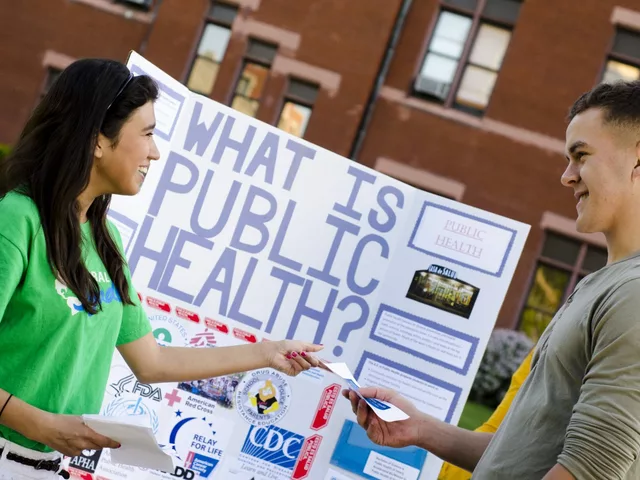Introduction to a Master's in Public Health
As a public health enthusiast, I've always been passionate about understanding the various factors that contribute to the overall health and well-being of communities. A Master's in Public Health (MPH) is an advanced degree that focuses on the science and practice of promoting health and preventing diseases on a population level. In this article, I'll explore the different aspects of an MPH program and how it can benefit both professionals and communities.
Core Areas of Public Health
Before diving into the details of an MPH program, it's essential to understand the core areas of public health that the degree covers. These include:
Epidemiology:
The study of the distribution and determinants of diseases in human populations, and the application of this knowledge to control health problems.Biostatistics:
The development and application of statistical methods to analyze and interpret data related to public health issues, such as disease outbreaks or health policy evaluation.Health Services Administration:
The management of public health organizations, including planning, organizing, coordinating, and evaluating health services and programs.Environmental Health:
The study of how environmental factors, such as air and water quality or hazardous waste, affect human health and how to address these issues through policy and regulation.Social and Behavioral Sciences:
The examination of individual and community behaviors and their impact on public health, as well as the development of interventions to promote healthy behaviors and prevent diseases.
These core areas provide a solid foundation for MPH graduates to address a wide range of public health issues and challenges.
MPH Program Structure and Curriculum
An MPH program typically takes two years to complete and includes coursework, practical experiences, and a capstone project or thesis. The curriculum covers the core areas of public health and often allows students to choose electives or concentrations to tailor their education to their interests and career goals. Some common concentrations include global health, health policy, and community health.
Admission Requirements and Prerequisites
Admission requirements for an MPH program vary between institutions but generally include a bachelor's degree from an accredited university, a minimum GPA, and GRE scores. Some programs may also require work experience in a related field, such as healthcare or public health. Additionally, applicants may need to submit letters of recommendation, a personal statement, and a resume or CV.
Benefits of Obtaining a Master's in Public Health
An MPH degree offers numerous benefits, such as:
Career Advancement:
An MPH can help professionals advance in their current roles or transition to new positions in the public health field, such as management or policy development.Increased Earning Potential:
Graduates with an MPH typically earn higher salaries compared to those with only a bachelor's degree in public health or a related field.Networking Opportunities:
MPH programs often provide opportunities to network with peers, faculty, and professionals in the public health field, leading to potential job offers and collaborations.Impact on Public Health:
With an MPH, professionals can implement evidence-based interventions and policies to improve the health of communities and reduce health disparities.
Online and Part-Time MPH Programs
For those who need flexibility in their education, many institutions offer online or part-time MPH programs. These options allow students to complete their degree while working or managing other responsibilities. The curriculum is usually similar to that of a traditional, full-time program, but the format and pace may vary.
Accreditation of MPH Programs
When considering an MPH program, it's crucial to ensure that it is accredited by the Council on Education for Public Health (CEPH). Accreditation ensures that the program meets specific quality standards and adequately prepares students for careers in public health. Employers often prefer candidates who have graduated from accredited programs, and some professional certifications require an accredited degree.
Job Opportunities for MPH Graduates
There are a variety of job opportunities for MPH graduates in diverse settings such as government agencies, non-profit organizations, hospitals, and academic institutions. Some potential job titles include:
- Public Health Analyst
- Epidemiologist
- Health Educator
- Research Scientist
- Environmental Health Specialist
MPH graduates can also work in global health, addressing health issues and disparities in low-resource settings around the world.
Conclusion: The Impact of a Master's in Public Health
Obtaining a Master's in Public Health can significantly enhance one's career prospects and ability to make a meaningful impact on the health of communities. Through a comprehensive curriculum and practical experiences, MPH graduates are equipped with the knowledge and skills needed to address pressing public health issues, develop evidence-based interventions, and advocate for policies that promote health and well-being on a population level.




